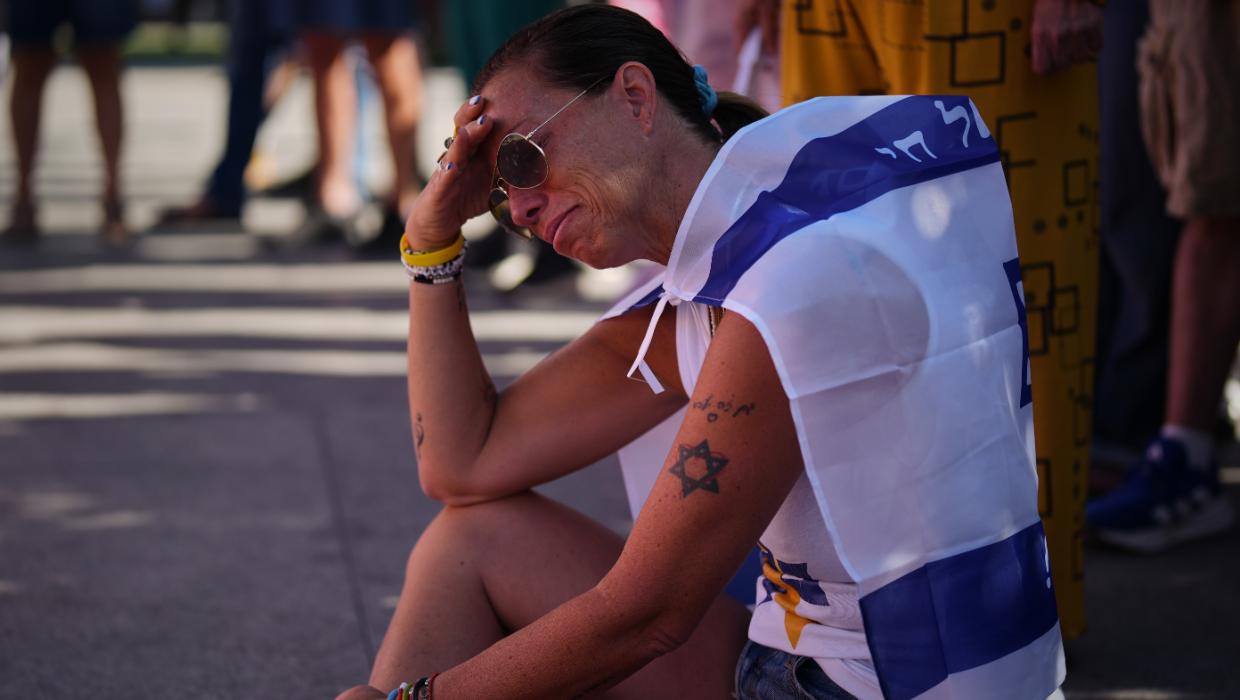Politics
Israel Divided Two Years After October 7 Attacks: A Nation in Turmoil

Two years after the devastating attacks on October 7, 2023, Israel finds itself in a state of deep division. The aftermath of the violence, perpetrated by Hamas, has led to intense scrutiny of Prime Minister Benjamin Netanyahu‘s leadership. Many citizens express frustration over what they perceive as the government’s failure to secure a ceasefire that could lead to the release of remaining hostages.
Public opinion in Israel has shifted dramatically since the attacks. Numerous protests have erupted, with demonstrators calling for accountability and a change in leadership. The dissatisfaction is not limited to opposition parties; even members of Netanyahu’s coalition government have raised concerns about his handling of the crisis. The Israeli Defense Forces (IDF) have been under pressure to justify their military strategies, while families of hostages remain desperate for news and resolution.
Political Landscape and Public Sentiment
The political landscape in Israel is marked by stark contrasts. Netanyahu’s government has faced criticism for its approach to both security and diplomacy. Some argue that the failure to negotiate a ceasefire reflects a broader issue of governance, with calls for increased transparency and more effective communication with the public. In the Knesset, the ongoing debates highlight the split among lawmakers, with some advocating for a more aggressive military response, while others stress the importance of diplomacy and humanitarian considerations.
The impact of the October 7 attacks extends beyond politics. Social cohesion has been tested, with communities grappling with the emotional and psychological scars left by the violence. Families of the hostages have become a focal point for public sympathy, their pleas for action resonating across the nation. As the two-year anniversary approaches, the challenge of healing a fractured society looms large.
The Path Forward
Looking ahead, the future of Israel’s political landscape remains uncertain. Netanyahu’s administration has pledged to address the issues raised by citizens, including the urgent need for a diplomatic resolution to the ongoing conflict. Proposals for negotiations involving the Palestinian Authority and other stakeholders have surfaced, although skepticism persists regarding their effectiveness.
The international community continues to watch closely, as Israel’s actions could significantly impact regional stability. Analysts suggest that a constructive dialogue with Palestinian representatives may be essential for long-term peace. However, trust remains a significant hurdle, exacerbated by years of conflict and mutual suspicion.
As Israel commemorates the anniversary of the October 7 attacks, the nation stands at a crossroads. Its citizens are calling for change, accountability, and a renewed commitment to peace. How the government responds to these demands will shape the future of Israel and its relationship with the wider world.
-

 World4 months ago
World4 months agoTest Your Knowledge: Take the Herald’s Afternoon Quiz Today
-

 Sports4 months ago
Sports4 months agoPM Faces Backlash from Fans During Netball Trophy Ceremony
-

 Lifestyle4 months ago
Lifestyle4 months agoDunedin Designers Win Top Award at Hokonui Fashion Event
-

 Entertainment5 months ago
Entertainment5 months agoExperience the Excitement of ‘Chief of War’ in Oʻahu
-

 Sports4 months ago
Sports4 months agoLiam Lawson Launches New Era for Racing Bulls with Strong Start
-

 World5 months ago
World5 months agoCoalition Forms to Preserve Māori Wards in Hawke’s Bay
-

 Health4 months ago
Health4 months agoWalking Faster Offers Major Health Benefits for Older Adults
-

 Lifestyle4 months ago
Lifestyle4 months agoDisney Fan Reveals Dress Code Tips for Park Visitors
-

 Politics4 months ago
Politics4 months agoScots Rally with Humor and Music to Protest Trump’s Visit
-

 Top Stories5 months ago
Top Stories5 months agoUK and India Finalize Trade Deal to Boost Economic Ties
-

 Health2 months ago
Health2 months agoRadio Host Jay-Jay Feeney’s Partner Secures Visa to Stay in NZ
-

 World5 months ago
World5 months agoHuntly Begins Water Pipe Flushing to Resolve Brown Water Issue









